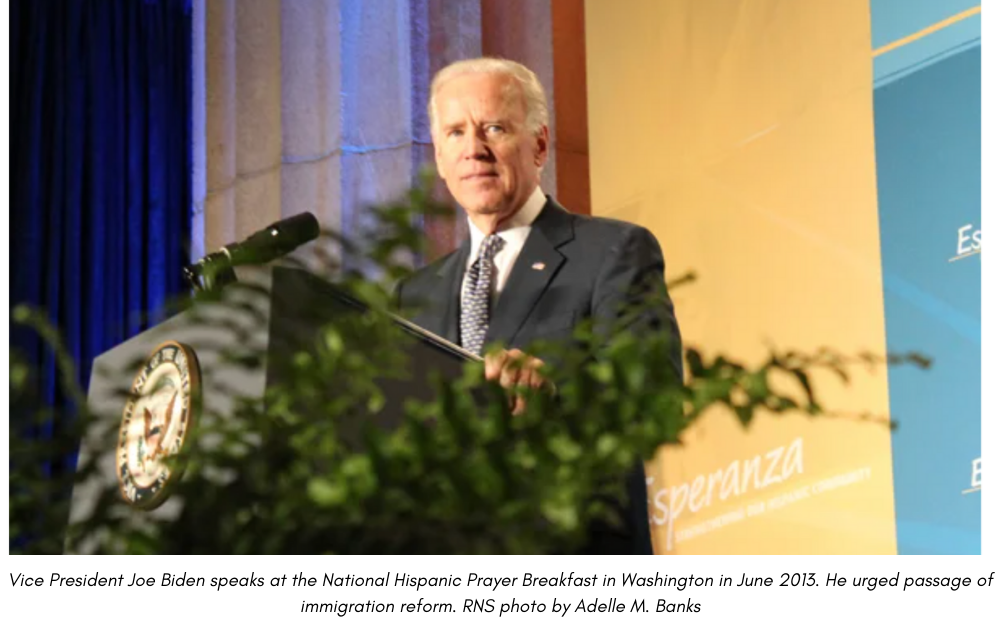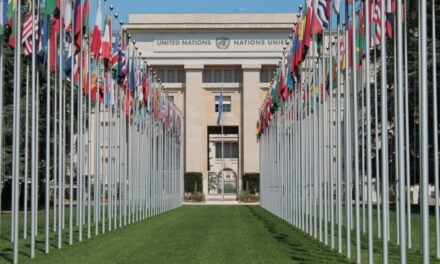Originally Published By:
Omar Suleiman to Religion News Service
(RNS) — For the last 20 years, American Muslims have been on a cruel roller coaster ride with presidential candidates and the two major political parties in general. In the 2000 presidential election, many Muslims voted for George W. Bush and his espoused compassionate conservatism, as well as his pledge to end the use of secret evidence, much of it aimed at the Muslim community, in the courts.
But after 9/11, the Bush presidency turned out to be U.S. Muslims’ worst nightmare. The administration launched two disastrous wars in Muslim-majority Afghanistan and Iraq, established torture camps such as Gitmo and Abu Ghraib, criminalized legitimate American Muslim institutions and charities, sentenced American Muslim leaders to draconian prison sentences on the basis of shoddy evidence and passed the Patriot Act, further curtailing our civil liberties.
Bush may not have said “I think Islam hates us” — to the contrary, he said “Islam is a religion of peace” — but his actions spoke far louder than his words.
President Barack Obama, with Vice President Joe Biden by his side, then ran a campaign of hope and change, yet Obama distanced himself from the Muslim community so as not to reinforce fears that he was secretly one of us. Most Muslims still voted for him and hoped that his roots, knowledge of Muslim culture and communities and overall campaign tenor would mean a new day for us.
Obama said the right things and made the right gestures, but the policies, in part carried over from his predecessor, only further perpetuated the culture of fear and stigmatization of Muslims in America, seemingly perfecting mass surveillance. The programs ushered in under the umbrella of Countering Violent Extremism, systematized and incentivized the Bush era criminalization, infiltration, and harassment of our community and institutions.
Meanwhile, he showed a propensity for illegal drone attacks on Muslims abroad — it was only three days after his inauguration that an American drone killed nine civilians having dinner in Pakistan.
President Donald Trump brought into the open the inherent mistrust of Muslims, winking to white supremacists in ways that caused anti-Muslim hate crimes to skyrocket while pushing for a ban on Muslims hoping to enter the U.S. to work and live. At the same time, his executive order on drone strikes hid their expanding numbers and casualties from the public.
Given this history, it’s easy to see why, Democrat or Republican, many Muslims remain skeptical of what any new president will mean for us in reality.
Most Muslims are relieved to see the dismissal of a president who was openly hostile to our community and will proudly point to how Muslims in key swing states contributed significantly to Trump’s loss.
We appreciate, too, the gestures Biden made to reverse Trump’s hostility, foremost his promise to repeal the ban on his first day in office.
But Muslims don’t just want to end the ban, they also want to end the bombs. The predominantly Muslim innocent civilians overseas don’t particularly care whether the president ordering drone strikes is a Democrat or a Republican. War has transcended both parties and led to the same devastation. Without ending the wars that have destroyed predominantly Muslim countries, refugees will continue to flock to increasingly hostile borders.
At home, we want to end state violence that afflicts all Americans. We want an end to qualified immunity for police officers and to fundamentally reimagine policing as a whole so that the hashtags marking the deaths of young Black men and women will stop. We want to undo the policies that mercilessly separate families, filling cages at the border and raiding homes so that children going to school wonder if they’ll come home to their parents or not.
Over the last few weeks, Muslims have heard the stories about Biden and his connection with Muslims — beyond the clip of him saying “inshallah” — which means “God willing” in Arabic — while pushing Trump on his taxes in the September presidential debate. There is the video from 1995, of then-Sen. Biden courageously standing up for Bosnian Muslims being massacred in the Srebrenica genocide. He suggested then that had those being massacred been other than Muslims, the world would’ve acted with a greater sense of urgency.
Will that same urgency carry over to the Muslims who are the victims of genocide today? Will it apply to the millions of Uighur Muslims placed in concentration camps under the Chinese regime, the millions more disenfranchised under a fascist prime minister in India, and the victims of the Rohingya genocide?
We’ve seen the clips of Biden in 1986 on the right side of history regarding South African apartheid. His record on the continued occupation and apartheid faced by the Palestinians, however, has been a profound disappointment. It is not enough to merely say that one believes in peace and a two-state solution anymore. There have to be consequences for egregious actions by Israel, such as the largest demolition of Palestinian homes in years that occurred this past week.
It’s time we have a president who acts with the same level of moral courage across the board and learns from America’s past mistakes.
We must fight mass incarceration at home, undo the damage of the crime bill, and rework our inhumane immigration and foreign policies. We must shut down Guantanamo Bay once and for all as Obama promised but failed to do. We cannot claim to be for basic human rights while holding human beings in cages for almost 20 years without any semblance of due process.
Biden campaigned with a message of healing our wounds. And we have many wounds as a country to heal. Many of those policy wounds, steeped in racism, militarism, and economic inequality, were not caused by Trump. They were only exacerbated, in part, by his ugly rhetoric.
Pleasant rhetoric, while refreshing at the moment, will not move us forward. Shifting the policies that continue to perpetuate harm here and abroad will, inshallah.














